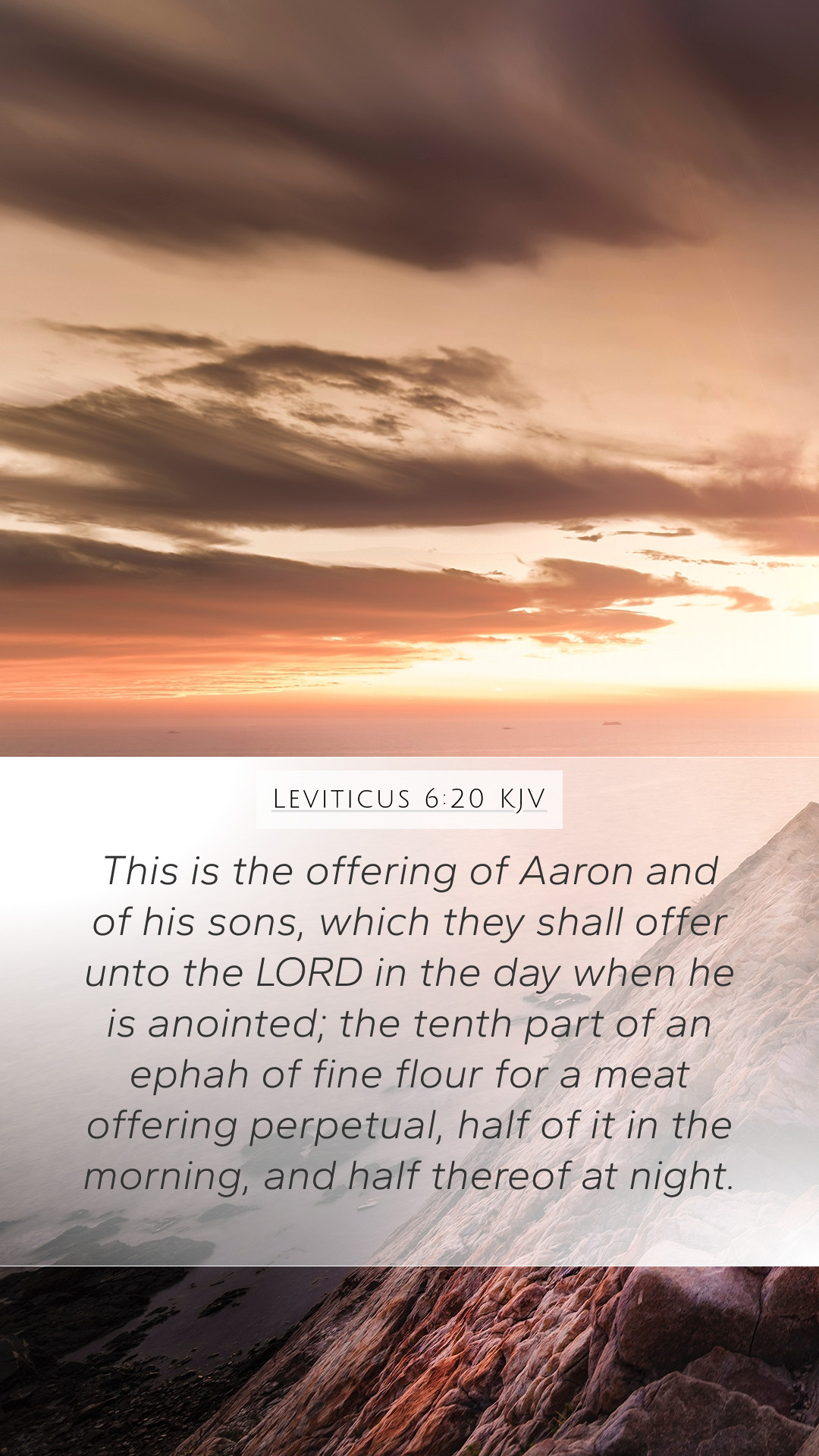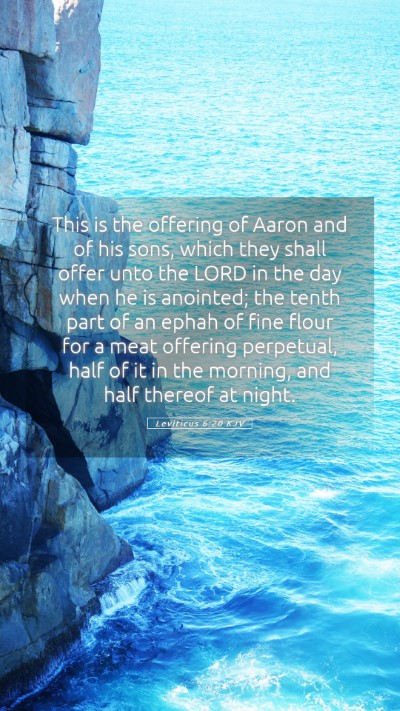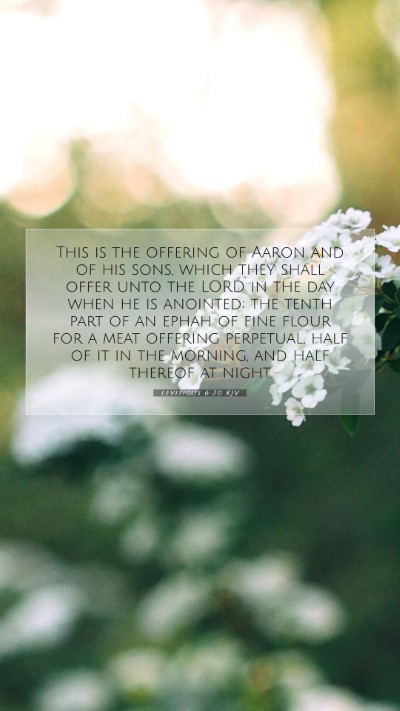Understanding Leviticus 6:20
This comprehensive analysis of Leviticus 6:20 seeks to provide an in-depth understanding of this significant Bible verse through the lens of respected public domain commentaries, including those by Matthew Henry, Albert Barnes, and Adam Clarke. Their insights contribute to a profound and holistic interpretation, serving as a valuable resource for anyone seeking to grasp the meanings of Bible verses and explore their relevance in both historical and contemporary contexts.
Verse Text
"This is the offering of Aaron and of his sons, which they shall offer unto the LORD in the day when he is anointed: the tenth part of an ephah of fine flour for a meat offering perpetual, half of it in the morning, and half thereof at night." - Leviticus 6:20
Contextual Background
The given verse is part of a larger discourse surrounding the priestly laws and offerings dictated in the Book of Leviticus. This specific passage outlines the offerings that Aaron and his sons are to partake in, emphasizing the importance of these rituals during their consecration as priests. The context is vital for a thorough Bible study analysis and a better understanding of the sacrificial system within ancient Israelite worship.
Significance of Offerings
According to Matthew Henry, the offerings presented highlighted a profound principle: the giving of the best to God as a source of acknowledgment and honor. The meat offering (more accurately termed a grain offering) signifies gratitude and the acknowledgment of God's provision, suggesting that believers should give out of love and appreciation.
Details of the Offering
As Albert Barnes elaborates, the “tenth part of an ephah” reveals a measured approach to offerings that ensured consistency and reverence in worship practices. This precise measurement also reflects the need for order in the worship of the community and further emphasizes the sacredness of the priestly duties.
Daily Offerings
Adam Clarke observes the instruction to offer half in the morning and half at night. This practice underscores the continuous relationship and commitment of the priests to God throughout the day, reflecting on the necessity for uninterrupted devotion and worship. It teaches that our service to God is not confined to certain times but is a constant expression of faith.
Theological Implications
The verse encapsulates several theological themes relevant to modern readers:
- Holiness: The rituals signify the importance of holiness and devotion in approaching God.
- Community Worship: It presents a blueprint for collective worship, emphasizing a unified approach to God.
- Symbolism: The grain offering symbolizes the fruits of one's labor and the acknowledgment of God's provision in life.
Practical Applications
In Bible study lessons, this verse can be applied to understanding how believers today can give their lives and resources to God:
- Commitment: Just as the priests were expected to offer regularly, believers are encouraged to commit to regular acts of service.
- Expressing Gratitude: Recognizing God's provisions through regular offerings – not just monetarily but through time and talents.
- Continuous Devotion: Maintaining an ongoing relationship with God that is evidenced through daily practices that honor Him.
Cross References
Leviticus 6:20 can be related to the following Bible verses:
- Exodus 29:38-42: Instructions for daily offerings.
- Leviticus 2:1-3: Guidelines for grain offerings.
- Numbers 28:2: The continual offering unto the Lord.
Conclusion
In summary, Leviticus 6:20 serves as an important reminder of the sacred responsibilities that come with spiritual leadership and worship. By taking insights from prominent commentaries, we conclude that understanding this verse requires a contextual and thematic exploration that resonates with both the original audience and contemporary believers. Engaging deeply with such texts can enhance our Bible study insights and create a richer understanding of Scripture.


